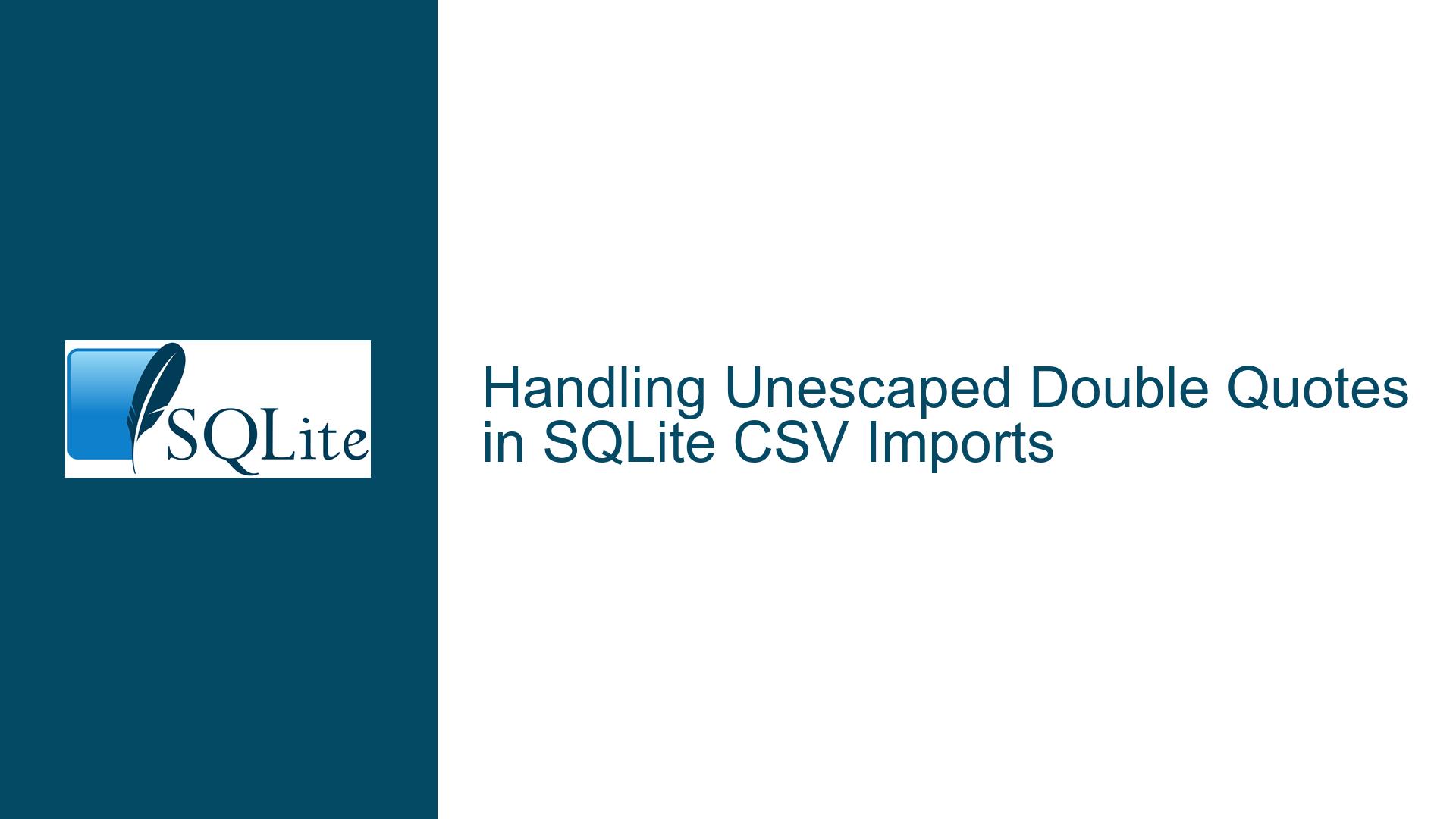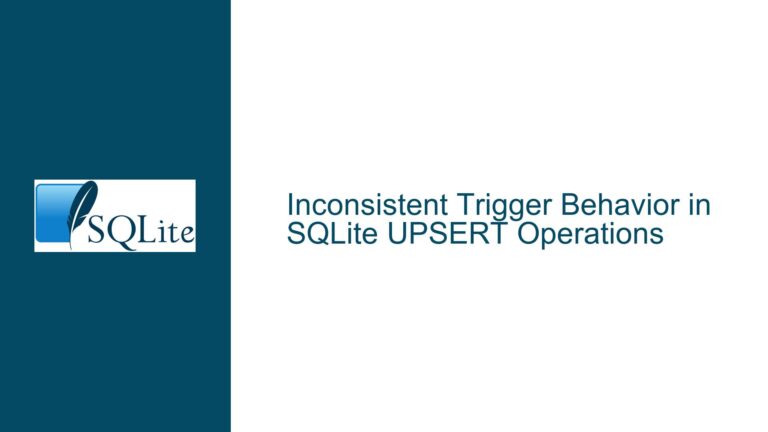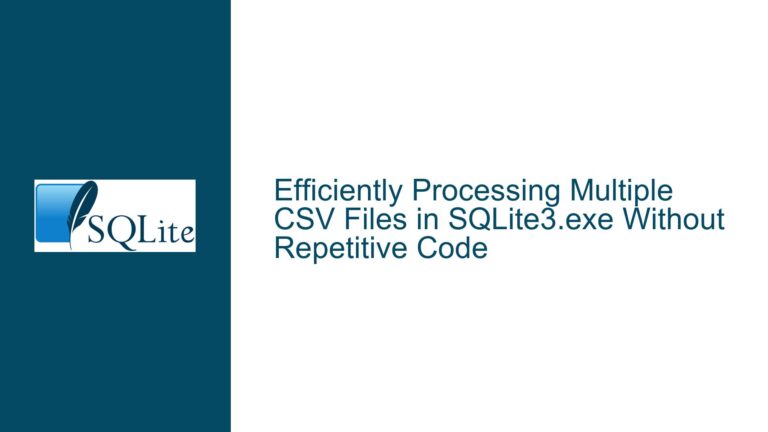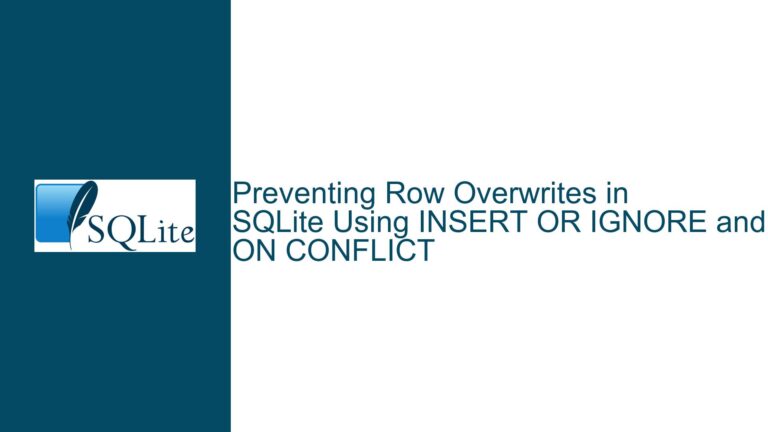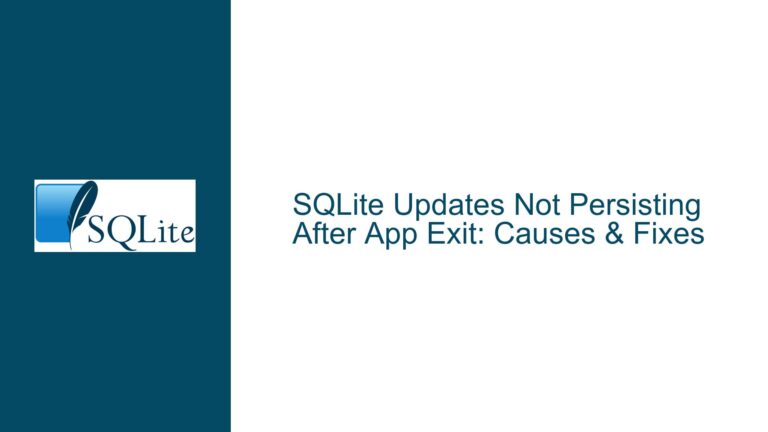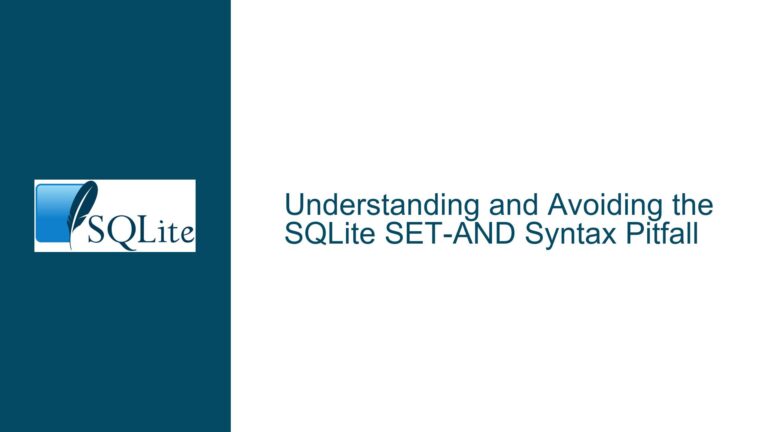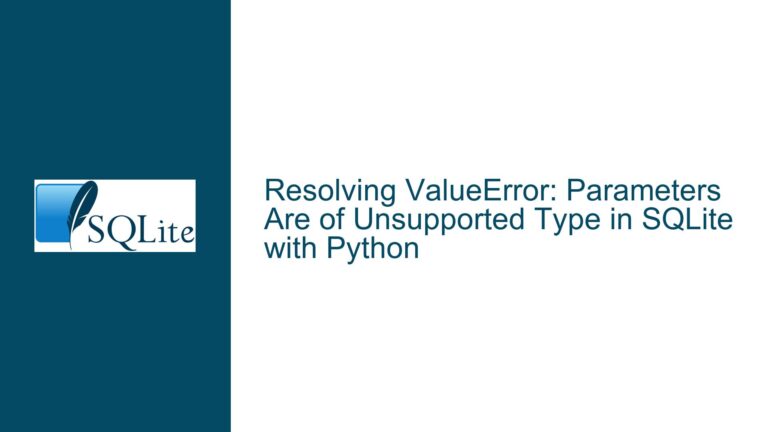Handling Unescaped Double Quotes in SQLite CSV Imports
Unescaped Double Quotes Causing CSV Import Errors in SQLite
When importing CSV files into SQLite using the .import command, one of the most common issues users encounter is the presence of unescaped double quotes within the data. SQLite expects CSV files to adhere to the RFC4180 standard, which mandates that double quotes within fields must be escaped by doubling them (e.g., ""). However, when the data contains unescaped double quotes, SQLite interprets them as text qualifiers, leading to errors such as unescaped " character. This issue is particularly problematic when the data is not under the user’s control, such as when importing third-party data or legacy files.
The error typically manifests when the CSV file contains fields with embedded double quotes that are not properly escaped. For example, consider the following line from a CSV file:
88545067|4|FAVIAN AGUSTIN|MARTIN|S/N -- (PREG POR FLIA DE "TAPIOLA")|S/N||3705|Catamarca|BARRIO LAS PARCELAS||X||9424||||||
In this case, the field S/N -- (PREG POR FLIA DE "TAPIOLA") contains an unescaped double quote, which SQLite interprets as the start or end of a text-qualified field. This misinterpretation leads to parsing errors, as SQLite expects the double quote to be either at the beginning or end of a field, or escaped within the field.
Misinterpretation of Double Quotes as Text Qualifiers
The root cause of this issue lies in SQLite’s adherence to the RFC4180 standard for CSV files. According to this standard, double quotes are used to enclose fields that contain special characters such as delimiters or newlines. When a double quote appears within a field, it must be escaped by doubling it (e.g., ""). However, many CSV files, especially those generated by non-standard tools or legacy systems, do not follow this convention. Instead, they may include unescaped double quotes within fields, leading to parsing errors when imported into SQLite.
In the example provided, the field S/N -- (PREG POR FLIA DE "TAPIOLA") contains an unescaped double quote. SQLite interprets this double quote as a text qualifier, expecting the field to be enclosed in double quotes. Since the field is not properly enclosed, SQLite throws an error indicating an unescaped double quote.
Another contributing factor is the lack of flexibility in SQLite’s CSV import functionality. Unlike some other database systems, SQLite does not provide an option to disable or change the text qualifier character. This means that users must either ensure that their CSV files adhere to the RFC4180 standard or preprocess the data to escape or remove problematic characters.
Preprocessing Data and Using Alternative Import Methods
To resolve the issue of unescaped double quotes in CSV files, users have several options. The most straightforward approach is to preprocess the data to ensure that all double quotes are properly escaped. This can be done using a script or a text editor that supports regular expressions. For example, the following Python script can be used to escape double quotes in a CSV file:
import csv
input_file = 'Fan_extrac_ccontac_26082020.txt'
output_file = 'Fan_extrac_ccontac_26082020_escaped.txt'
with open(input_file, 'r', newline='', encoding='utf-8') as infile, open(output_file, 'w', newline='', encoding='utf-8') as outfile:
reader = csv.reader(infile, delimiter='|')
writer = csv.writer(outfile, delimiter='|', quoting=csv.QUOTE_MINIMAL)
for row in reader:
escaped_row = [field.replace('"', '""') if '"' in field else field for field in row]
writer.writerow(escaped_row)
This script reads the input CSV file, escapes any double quotes within fields by doubling them, and writes the corrected data to a new file. The resulting file can then be imported into SQLite without encountering the unescaped double quote error.
Another approach is to use an alternative import method that does not rely on SQLite’s built-in CSV import functionality. For example, users can write a custom script to read the CSV file and insert the data into the SQLite database using parameterized queries. This approach provides greater control over how the data is parsed and allows users to handle special characters in a way that is appropriate for their specific use case.
For example, the following Python script reads a CSV file and inserts the data into an SQLite database:
import sqlite3
import csv
input_file = 'Fan_extrac_ccontac_26082020.txt'
database_file = 'example.db'
table_name = 'BS_CCONTACT_ALL'
conn = sqlite3.connect(database_file)
cursor = conn.cursor()
with open(input_file, 'r', newline='', encoding='utf-8') as infile:
reader = csv.reader(infile, delimiter='|')
columns = next(reader) # Assuming the first row contains column names
placeholders = ', '.join(['?'] * len(columns))
create_table_sql = f"CREATE TABLE IF NOT EXISTS {table_name} ({', '.join([f'{col} TEXT' for col in columns])})"
cursor.execute(create_table_sql)
insert_sql = f"INSERT INTO {table_name} VALUES ({placeholders})"
for row in reader:
cursor.execute(insert_sql, row)
conn.commit()
conn.close()
This script reads the CSV file, creates a table in the SQLite database with the appropriate columns, and inserts the data using parameterized queries. This method avoids the limitations of SQLite’s built-in CSV import functionality and allows users to handle special characters in a way that is appropriate for their specific use case.
In cases where preprocessing the data is not feasible, users may consider using a different database system that provides more flexibility in handling CSV imports. For example, PostgreSQL’s COPY command allows users to specify custom text qualifiers and escape characters, making it easier to import non-standard CSV files. However, this approach requires migrating the data to a different database system, which may not be practical in all situations.
In conclusion, the issue of unescaped double quotes in CSV files can be resolved by preprocessing the data to ensure that all double quotes are properly escaped, using alternative import methods that provide greater control over how the data is parsed, or migrating to a database system that offers more flexibility in handling CSV imports. By understanding the root cause of the issue and exploring the available solutions, users can successfully import CSV files into SQLite without encountering errors related to unescaped double quotes.
